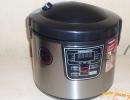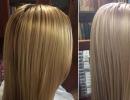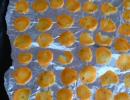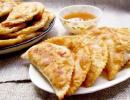How to get rid of hiccups in a child
Hiccups are such an unpleasant word, because every person is familiar with its meaning and the annoying manifestations of this reflex. Unfortunately, all people without exception are susceptible to this disease, including children of any age. Of course, when a child hiccups, parents begin to worry, wanting to help the baby. But how to get rid of hiccups in a child?
In order to answer this question, it is necessary to have a clear understanding of the causes of the phenomenon under discussion and the mechanisms of its development. In addition, depending on the age of the child, both the methods of control and the causes of hiccups themselves may vary.
General information about hiccups
The word hiccups refers to a reflex that is explained by spontaneous and completely uncontrolled contraction of the diaphragmatic muscle (also known as the diaphragm) and intercostal muscles. As a result of this, a person feels a push of a certain gravity in the chest area, accompanied by a characteristic sound.
Hiccups certainly occur during inhalation, while the contraction of the diaphragm is a sharp and very short-term interruption of inhalation, that is, we are talking about a minor disruption of the respiratory process. Simultaneously with the “push”, the glottis in the area of the epiglottis is blocked, resulting in that same unpleasant sound.
Most scientists and doctors agree that hiccups in children and adults occur for one reason - the body instinctively tries to get rid of air trapped in the stomach. It is worth noting that children hiccup much more often than adults, and the smaller the child, the more likely it is that an attack of diaphragm contraction will occur. This is due to several factors:
- Physiology– the distance from the oral cavity to the stomach in babies is smaller and accidental entry of air into the digestive organ is more likely;
- Inexperience– children, especially when it comes to babies, have poor control over all their actions, including eating and drinking. This also increases the likelihood of swallowing air.
Varieties of the disease
In addition to the mechanism for the development of hiccups, it is worth noting that the manifestations of this reflex can be divided into two types:
- Intermittent hiccups- occurs suddenly, spontaneously, is characterized by its short duration (5-15 minutes), after which it disappears as unexpectedly as it appeared.
- Long lasting– such manifestations are daily in nature, they are characterized by a long course, they do not go away for weeks. In such situations, you need to pay attention to the child’s well-being, his moodiness, headaches, nausea, frequent regurgitation, because in combination these symptoms may indicate the presence of some disease; consult a doctor immediately.

It is worth noting that the second point is much less common; parental concern and anxiety about how to stop hiccups do not have serious grounds, and you should not worry.
Why do children hiccup?
In most cases, the causes of hiccups in children and adults are very similar, and if we move away from the fact that the cause of diaphragm spasms is only the reflux of air into the stomach, we can identify a number of the following harmless and very common factors:
- Binge eating– excessive consumption of food, even breast milk or artificial formulas, if we are talking about infants, contributes to stretching of the digestive organs. As the stomach stretches, its walls begin to trample on the diaphragm, irritating the phrenic nerve and causing its involuntary contractions.
- Hypothermia It’s no secret that children are significantly more susceptible to hypothermia than adults. Even small changes in temperature can trigger hiccups, in which case contracting the diaphragm is the body's way of increasing heat production.
- Emotional outburst– It is very easy to frighten a child and throw him off balance. One sharp loud sound, being in a noisy room, with a large number of people around is enough, and hiccups will not take long to occur.
- When it comes to children under one year old, an important role is played feeding technique breastfeeding and the process of eating food. Firstly, if the technique is broken, the child will swallow excess air along with milk; you should consult a specialist about this. Secondly, the mother should refrain from foods that cause fermentation, because the child receives a certain part of them with milk, which can adversely affect his digestive system, causing flatulence and hiccups.
- Poor nutrition– older children are often picky about food, and parents follow their lead. Make sure your child eats properly, not dry food, regularly. It is better to exclude fatty, fried and spicy foods, carbonated drinks, and foods with chemical additives.
Taking into account all the points described, you won’t have to worry about how to get rid of hiccups in a child. However, even if diaphragm spasms occur for one of the reasons mentioned, the hiccups should go away quite quickly, even without outside intervention.
Hiccups as a symptom of a dangerous disease
Up to this point, everyday and practically safe factors for the manifestation of the reflex under discussion have been discussed. But it is worth noting that if the hiccups are systematic and prolonged, this may be a cause for concern, because the reasons may be much more serious:
As you can see, the problems mentioned can seriously threaten the child’s health, and some of them may be congenital. In such situations, it is necessary to focus not so much on getting rid of attacks of hiccups, but on diagnosing and treating the disease that provokes these manifestations.
Methods to combat hiccups
Methods for eliminating hiccups in children and adults sometimes differ, because due to age and capabilities, the implementation of some methods is simply impossible. For example, how do you make a one-year-old baby hold his breath?
However, there are still effective methods and you need to know them:
- If you are wondering how to get rid of hiccups in a child from the first days of life to one year, it is enough to hold the baby in an upright position for 5-10 minutes or lay him on his tummy. Such actions are especially necessary after feeding in order to free the stomach from excess air, eliminating not only hiccups, but also bloating, colic, and flatulence.
- A child at any age can be asked to drink a small amount of liquid. Ideally, this should be boiled water at room temperature, which, when it enters the stomach, will displace the air accumulated there and eliminate spasms of the diaphragm.
- It is very important to establish the cause of hiccups, because the first two methods are good, but they will not save if the baby is cold. In this case, it is necessary to warm the child, after which the diaphragmatic muscle relaxes and the attack passes on its own.
- For older children, there is another way - you can put a piece of lemon on the tongue and hold it for 2-3 minutes. If lemon is not suitable for some reason, a cube of refined sugar will do.
- If the question is how to get rid of hiccups quickly, when nothing helps, you can resort to a more radical method - induce vomiting. First, the child should be given water to drink so that there is something in the stomach; you need to act with extreme caution so as not to harm the baby. You should first talk about what will happen, otherwise there is a chance of getting very frightened.
As a result, I would like to say that in most cases, hiccups in children are really harmless, they go away quickly and cause minimal inconvenience, children may not even notice it. But in case of systematic manifestations, hurry to consult a doctor, because the risk may be unreasonably high.






